Welcome to Within Reach Alastair, thanks again for the awesome session at RAW 2024!
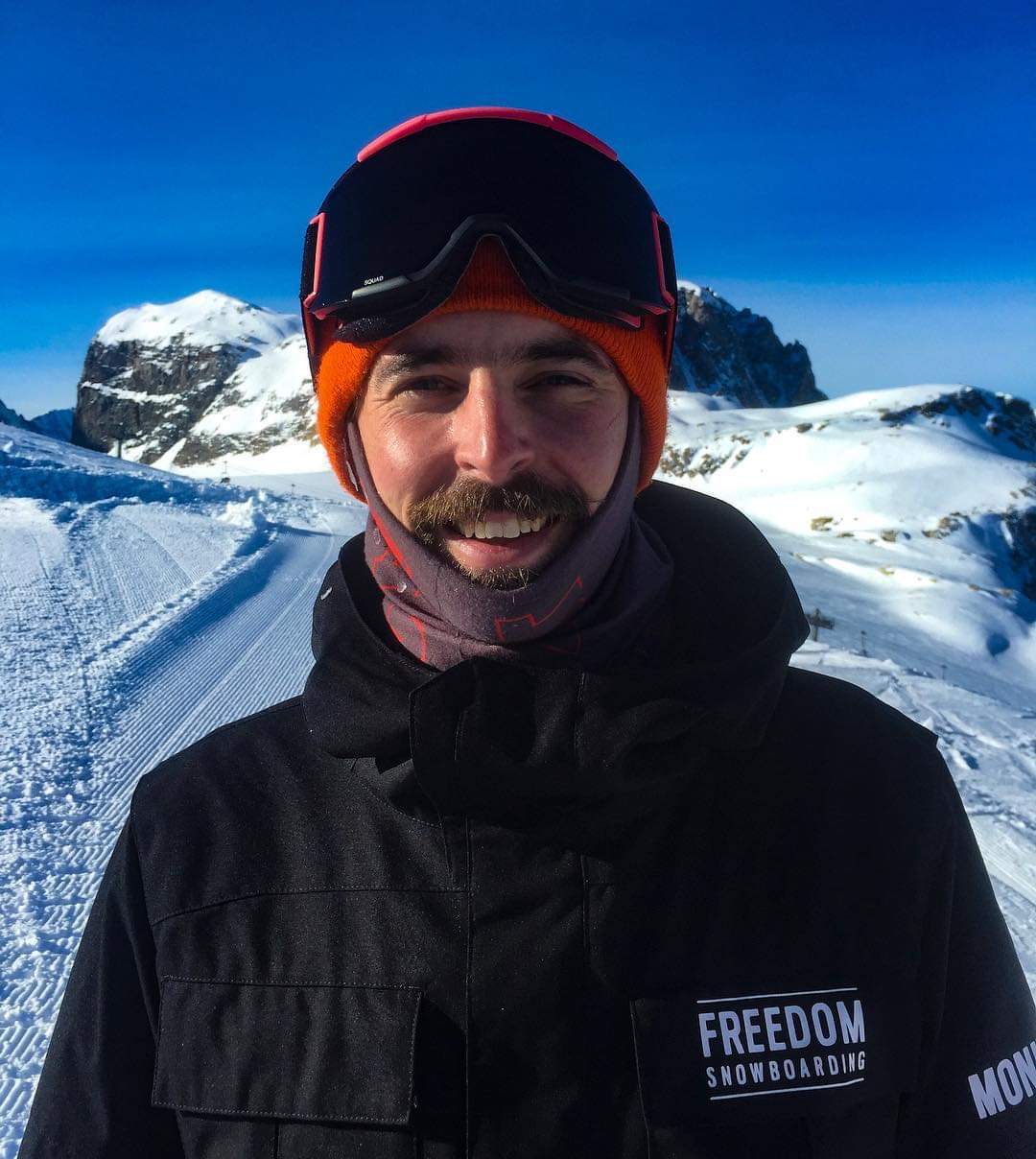
Please tell us a bit about yourself… Where do you call home, when did you start snowboarding etc.?
I live in Edinburgh now but mainly grew up in the north west of England and Cumbria in particular which is where I fell in love with mountains. I went to Canada for a year before University and learnt to snowboard (badly) whilst working in a ski resort. After university in Nottingham, I went back to the mountains where I went on to work winters in Italy, France, Canada again, New Zealand, Scotland and Japan.
How did you become a para snowboard coach?
I’d been a snowboard instructor for 9 years and just moved back to the UK when the job came up. I knew one para snowboarder, Owen Pick, from my time in France and was excited by the opportunity to work with future potential Paralympians. I also liked the idea that I might be able to have a positive impact on the lives of people with disabilities.
Did you have any preconceptions entering the world of para sport?
I’ve tried hard not to. I’ve always tried to assume that people with disabilities can do things and let them try then adapt if they can’t. I suppose I assumed they had more support from the health service. From my experience it seems often if someone with a disability can “get by” then it’s hard from them to get extra support to excel at things.
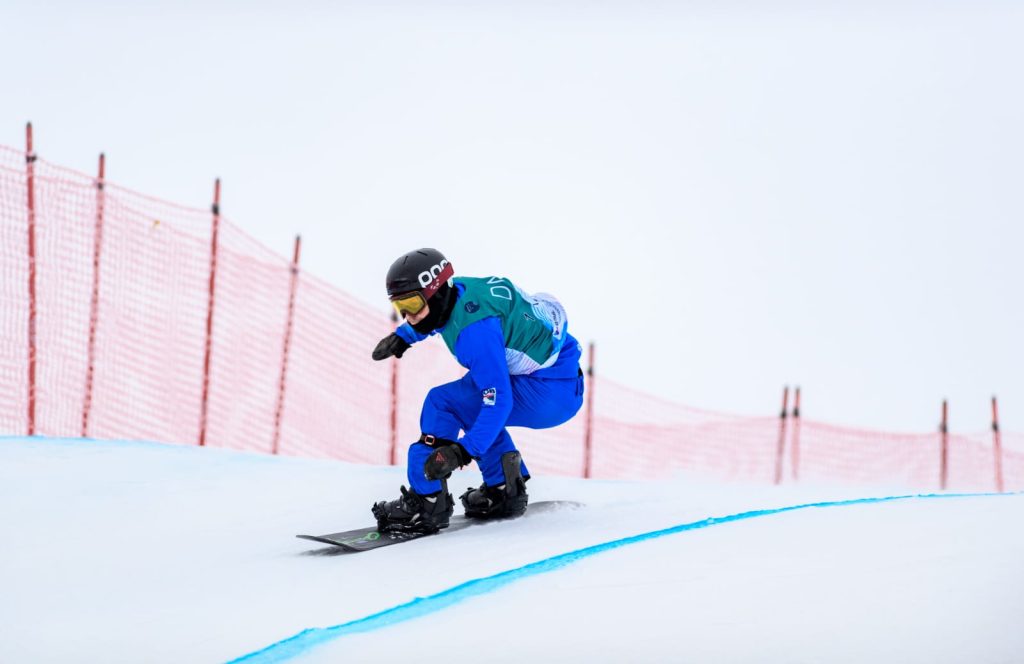
What’s been a highlight for you as a coach?
The progress of the athletes I’ve coached, just seeing them improve and what it means to them. Some of which has led to medals which is even better. I’ve also helped set up a series of disability inclusive Snowsport races which has created a community and training environment which previously didn’t exist.
Biggest learning curve?
The classification system for para sport isn’t as straight forward as it seems initially.
What are the classifications for upper limb difference – is it just one or are there differing categories depending on elbows etc. like in other sports?
So, for snowboarding it’s just one category of upper limb and everyone races together. That includes people with spasticity, dystonia, hypertonia, ataxia and muscle weakness as well as people missing parts of their arms. If you have limb loss, it has to be between the wrist and elbow broadly speaking.
For skiing and cross-country, the upper limb category is anyone who would struggle/can’t hold a pole so that includes missing fingers too. These sports have factors that adjust the time they take on the course. The factor differs between the level of upper limb impairment.
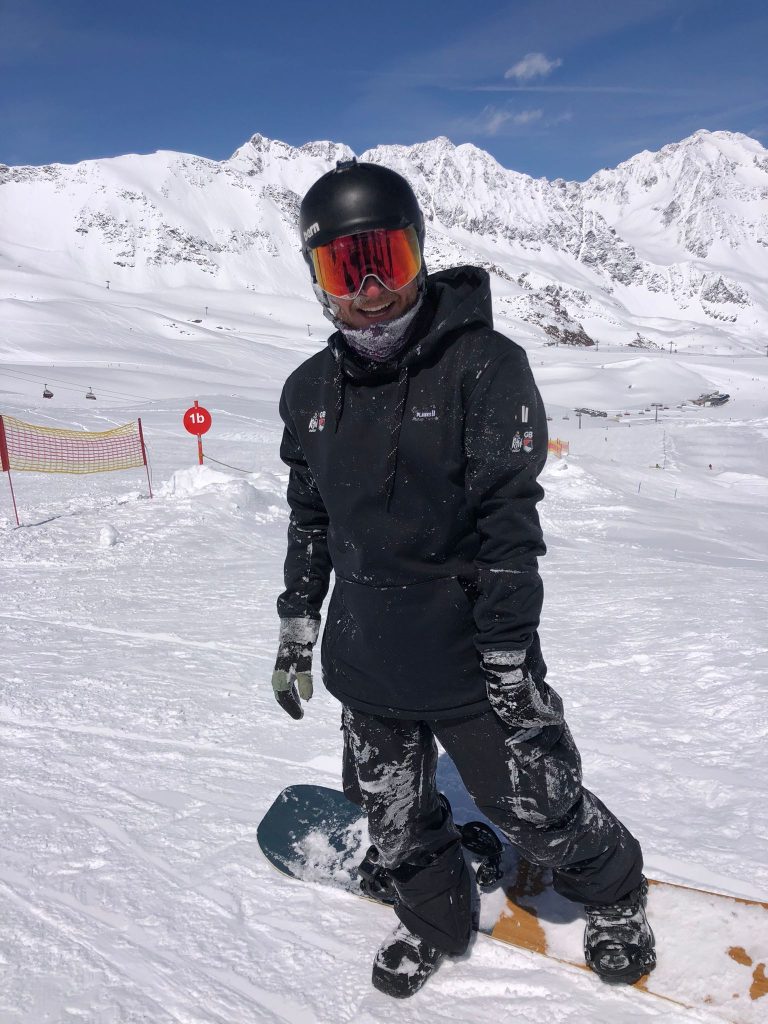
What opportunities are available for Reach children wanting to enter the Snowsport world? Where should parents/children start?
The three Snowsports are alpine skiing (the one where you go downhill), snowboarding and cross-country skiing (the one where you go along the flat). For skiing and snowboarding they’re more adrenaline sports. Cross country is an endurance sport. There are around 47 dry slopes across the UK where you can learn to ski and snowboard, and there are 5 indoor snow slopes. There are 9 Nordic clubs where you can try cross country. I’d definitely start with lessons at any of the above places. Most of the people I’ve met with upper limb difference would be fine to join a mainstream lesson, but if they would prefer or think they need support from people with more disability experience then they should contact Disability Snowsports UK.
In terms of support from Disability Snowsports UK, what kind of support is available…For example, is there funding available to get children to training if they need help?
Their private lessons are a lot cheaper than mainstream private lessons. They periodically have deals and discounts too. So, the Manchester slope had some free lessons available last month, for example.
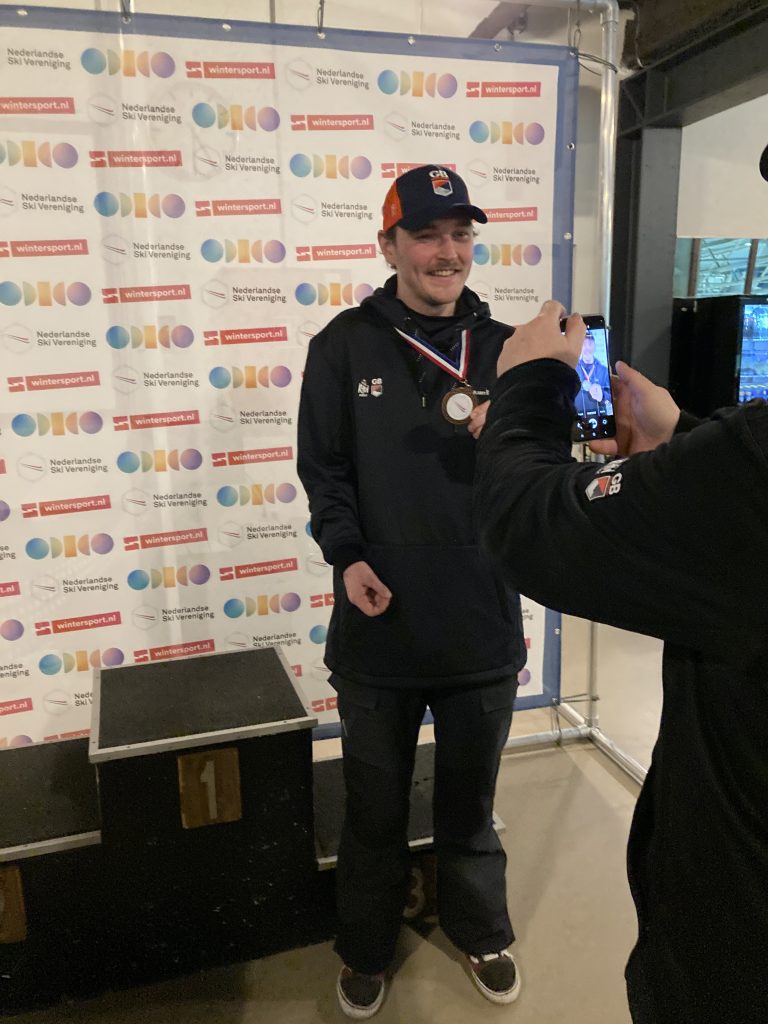
Are there any presumptions/preconceptions from either parents or people outside of the world of sport about the para pathway that you’ve had to combat over the years?
Mainly just people not being aware of para snowboarding and the fact it is a paralympic sport.
We’re seeing more young female athletes being represented in parasport which is awesome, from your point of view, are they still under-represented and what can we do to encourage more girls to try/get into Snowsport?
Yeah definitely, it would be great to see a field as deep with female competitors as male. I think we have to listen to girls and women and find what stops them or turns them off sport and what would encourage them to take part. And provide some opportunities tailored to them. Also champion the female athletes we do have so they can see what’s achievable.
Jack began snowboarding 4 years ago, what does it take to get to paralympic competition level?
So, over the summer he’s at his local indoor snow centre at least once a week. Then over the winter he’s spending at least 30 days on snow each winter.
He’ll probably have to increase that a bit to get to Paralympics. It’s hard to say how long it will take in general. It depends on so many factors that differ between individuals: age, background, access to facilities, access to funding. If you can spend the amount of time he has then around 6 years from beginner would be pretty quick.
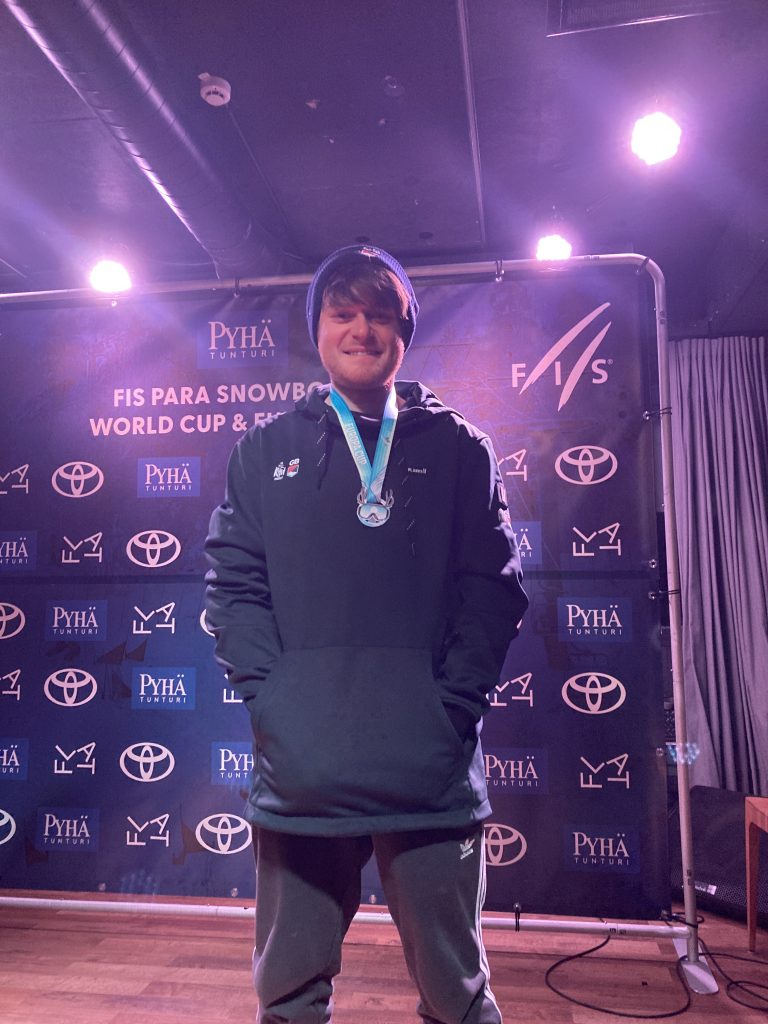
Questions for Jack
Have you always loved Snowsport? How/when did you get into it?
I got into it 4-ish years ago and I’ve loved it since the first lesson, but never really considered it before that.
How has having the support of a para coach changed things for you?
The para coaches have been brilliant as they not only just facilitate and deliver training and help improvement, but they quickly got me ready and into a good position to hold my own against other competitors.
What’s been a highlight on your para Snowsport journey so far?
The highlight so far has been getting 2nd place in the Europa Cup, it came out of nowhere and has a been a good bench mark to try and beat next season.
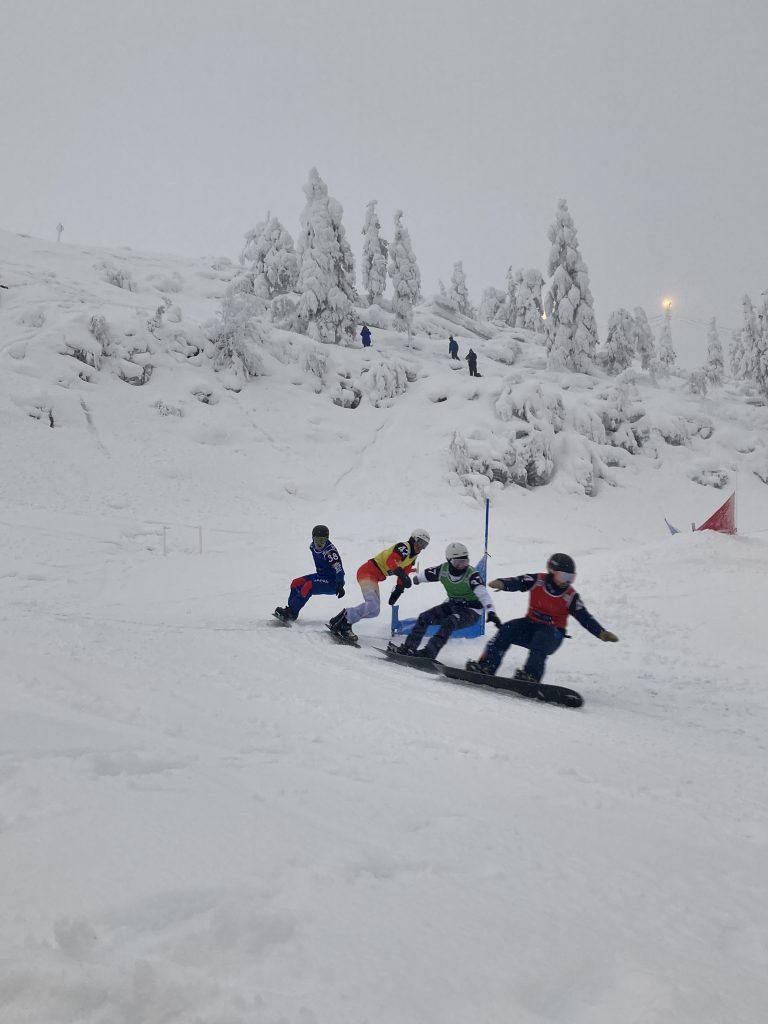
And your biggest challenge to overcome?
My biggest challenge has been the taking up of a brand-new sport, especially in the first 2 years, I had to ride faster than I was comfortable with to keep up with the navy lot, which resulted in snapping ligaments/tendons in my collar bone. But threats of injury are always good to force you to concentrate and ride better.
Shared from Within Reach Magazine Winter 2024. Flick through the whole magazine here!

